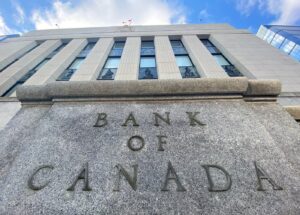Welcome to Extreme Investor Network, where we provide unique insights and valuable information in the field of Economics. Today, we are discussing the recent decision made by the Bank of Canada to cut rates by 25 bps to 4.25%, marking the third consecutive rate cut.
Inflation in Canada has reportedly slowed to 2.5% as of July, prompting Governor Tiff Macklem to justify the rate cut as a way to attract more investment. Despite the slight decrease in inflation, Canada’s GDP grew at a faster rate than anticipated during Q2, expanding by 2.1% compared to the forecasted 1.8%. However, the unemployment rate remains high at around 6.4%.
The Bank of Canada acknowledges that these rate cuts may not have a significant impact on the housing market. While some components of the Consumer Price Index (CPI) have exceeded 3%, shelter price inflation remains a concern. It continues to be the major contributor to overall inflation, despite showing signs of easing.
However, will these rate cuts lead to major changes in Canada’s economy? Unfortunately, the answer is no. Canada is facing significant challenges when it comes to debt. In 2016, the total private debt of the Canadian public surpassed the nation’s GDP for the first time in history, reaching 100.7%. The national debt has also spiked to $1.501 billion USD in March 2024, a substantial increase from the previous year. With gross debt at 117.2% of GDP in 2021, the country is struggling to manage its financial obligations.
Canada currently ranks as the third-highest nation in terms of household debt globally, behind only Switzerland and Australia. Under the Trudeau Administration, household debt has exceeded 100% of GDP, with no signs of slowing down. Government debt has also skyrocketed in recent years, surpassing C$1,139.98 billion.
The population of Canada has seen a significant increase due to open border policies, making it challenging for the government to manage its financial resources effectively. Despite rate cuts by the Bank of Canada, the excessive borrowing by the government against future generations continues to pose a risk to the country’s economic stability.
Stay tuned to Extreme Investor Network for more exclusive insights and expert analysis on the dynamics of the global economy.

